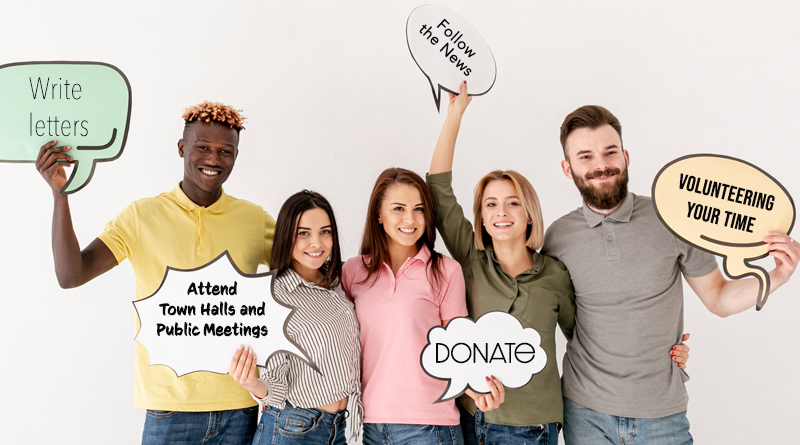Engaged Citizens Create Better Communities
Collective action and community involvement do not end with elections.
By: Maria Alejandra Pulgar
Political involvement does not end with elections season. Voting is a very important right for the nationals of a country, but every member of society has an important role, is a constituent of the elected officials, has the right to communicate with them and, moreover, the responsibility to watch over them making proper use of the resources under their custody and administration.
It is during “quiet times” between elections when grassroot for collective action movements flourish, and social transformation begin when responsible citizens become interested, involved, and actively participate on their communities.
“I leave that to politicians.”
That is the most frequent answer that people give when questioned about their participation in decisions that could impact on all the community. Being continuously informed and involved is an effort that is worth making.
At the end of the day, good politicians are nothing more than citizens who took the plunge forward to offer their time and talent for the greater good. But even regular, anonymous people can make a true impact. “Time, Treasure and Talent” are the three key components of community involvement and there are simple but impactful ways to practice them.
Quick guide for “post-election” involvement:
Keeping elected officials, at all levels, reminded of what is important for you as a citizen, what is your opinion on issues under discussion and how you would like for them to act to protect your best interest and that of your community is easier than you think.
You do not need to be a national citizen to have the right to communicate with elected officials, it is enough that you are a constituent under their representation. Provided that you keep communication respectful and relevant, elected officials will be glad that you voice your questions and concerns through the different methods available for that. Here is a quick guide:
- Write letters: Writing letters to Councilmembers, Senators, or Representatives, and even the President is as easy as looking into their websites. There you will find a space to write to them directly, or email and postal addresses where you can send them letters; just be clear, concise, and enthusiastic about your point. Tell them what you care about, what you want them to do, and why it matters. They ALWAYS ANSWER.
- Making phone calls: Calling a politician’s office might seem a bit daunting, but it is a fantastic way to make your voice heard. Sometimes a phone call can make a significant difference for a worthy cause.
- Attend Town Halls and Public Meetings: It is the best opportunity to gain experience of government procedures, how decisions are made, to ask questions, voice your concerns, and see how they respond to the issues that matter to you.
- Follow the News: Staying informed is crucial. Read articles and newsletters, watch the news. This will help you understand the issues, track your representatives’ voting records, and hold them accountable.
- Donate to Causes You Care About: Money talks, and your donations can help support organizations that are fighting for the causes you believe in.
- Volunteering Your Time: Volunteering for campaigns, nonprofits, or community organizations is the best way to influence your community and meet new people.
The Power of Collective Action
While individual actions can have influence, collective action is often more impactful, because there is power in numbers. Joining advocacy groups, participating, and organizing community events can amplify your voice and mobilize others to make positive changes.
Community organizations more than 20 years ago made it possible that our City of Doral was incorporated, and community outlets like Doral Family Journal continue playing a significant role in keeping citizens informed and involved. When people’s voice is heard democracy thrives. It is your responsibility as citizens to continue an active involvement for the greater good.

